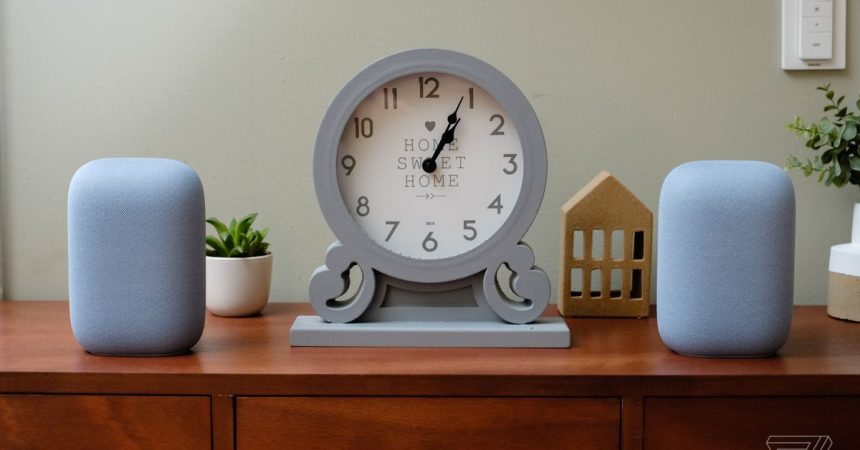The landscape of voice-activated assistants is undergoing a significant transformation, with Google leading the charge by integrating its advanced large language model, Gemini, into its Google Assistant platform. This integration marks a pivotal step towards a more conversational and insightful interaction with smart home devices, moving beyond simple commands and into the realm of nuanced understanding and knowledge-based responses. The rollout, currently in its nascent stages, offers a glimpse into the future of smart home technology, where AI plays a central role in providing users with enriched information and a more seamless interactive experience.
Initially, Google is focusing on enhancing the Google Assistant’s ability to answer general knowledge questions on select Nest smart speakers, specifically the Nest Audio and Nest Mini (2nd gen). This targeted approach allows Google to meticulously test and refine Gemini’s capabilities within a controlled environment before expanding its integration to other devices and functionalities. While existing features like smart home control and music playback will continue to be handled by the current Google Assistant infrastructure, Gemini will augment the user experience by providing more comprehensive and contextually relevant answers to a wider range of queries. A distinct chime will precede Gemini-powered responses, clearly distinguishing them from the standard Assistant’s output.
The Gemini-enhanced Google Assistant aims to deliver a more conversational experience akin to interacting with Gemini on mobile platforms like Android and iOS. Users can delve deeper into topics by asking follow-up questions and even interrupt the Assistant mid-response to pose new queries. This dynamic interaction represents a significant departure from the traditional command-and-response model, fostering a more natural and intuitive communication flow. However, the current implementation still requires users to initiate each interaction with the “Hey Google” wake phrase, maintaining a level of structured engagement.
The rollout of this advanced functionality is currently limited to a select group of users participating in Google Home’s Public Preview program, further restricted to those who are also Nest Aware subscribers and have specifically opted into Experimental AI features. This tiered approach ensures that the new features are thoroughly vetted by a dedicated user base before being made widely available. The limited rollout also allows Google to gather valuable user feedback and address any potential issues or limitations before a broader release, ensuring a smoother and more polished user experience in the long run.
Access to the Experimental AI features is granted through a notification within the Google Home App inbox, providing users with the option to toggle on the feature and begin experiencing the Gemini-powered Google Assistant. This opt-in process emphasizes Google’s commitment to user privacy and control, allowing individuals to consciously choose whether or not to participate in the testing phase. The notification system also serves as a clear communication channel, keeping users informed about the availability of new features and providing them with the necessary information to make informed decisions.
The integration of Gemini into the Google Assistant ecosystem is not merely an incremental upgrade but represents a paradigm shift in the way users interact with their smart home devices. This evolution signifies a move towards a more intelligent and conversational interface, where the Assistant can provide richer, more contextually relevant information and adapt to the nuances of human language. While currently limited in scope, this initial rollout lays the foundation for a future where AI plays an integral role in managing and enhancing our everyday lives within the connected home environment. As Google continues to refine and expand this technology, we can anticipate even more seamless and intuitive interactions with our smart devices, blurring the lines between human-computer interaction and fostering a truly intelligent living space. The potential applications of this technology are vast, ranging from personalized learning experiences and enhanced productivity tools to more sophisticated home automation and even companionship for those who live alone. The future of the smart home, powered by advanced AI like Gemini, promises to be truly transformative.



